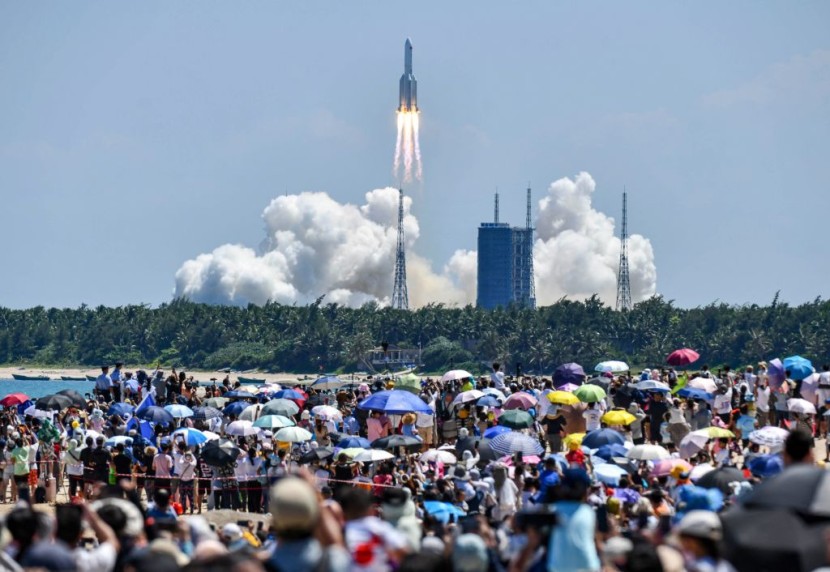
China has received widespread criticism over a rocket booster that helped launch part of a space station into orbit that crashed into Earth's atmosphere on Saturday over the Indian Ocean.
Officials believe that the 25-ton debris re-entered the planet's atmosphere over Southeast Asia at around 10:45 a.m. In Malaysia, witnesses reported seeing bright objects in the sky that resembled meteors but said that it was likely debris.
China's Rocket Debris
Experts at Aerospace Corporation have closely tracked the booster and believe that the vast majority of the rocket burned up in the atmosphere. However, they said that it was possible that as much as 20% to 40% of the object could have remained intact until it reached the ground.
But so far, there have been no reports of damage or injuries from any of the island nations that surround the eastern part of the Indian Ocean. The sights of the falling debris are similar to China's rocket booster returns in 2020 and 2021 when they landed over Africa and the Indian Ocean, as per the New York Post.
China launched the Long March-5B rocket on July 24 which delivered a laboratory module for its new Tiangong Space Station, before falling back towards Earth. Due to the incident, the United States and several other countries have slammed China for the threat that the debris could bring.
Read Also : Vladimir Putin Teases Deployment of Zircon Hypersonic Missiles Soon Amid Russia-Ukraine War
In a statement, NASA Administrator Bill Nelson criticized the People's Republic of China for the country's lack of transparency over the potentially catastrophic event. The official said that Chinese authorities did not share specific trajectory information as their Long March 5-B rocket fell back to Earth.
According to Space, several social media users have captured footage of the falling debris, with the most striking coming from Twitter user Nazri Sulaiman. The video was a 27-second recording from Kuching, Malaysia. It shows one section of the object outshining others as it was trailed by fiery debris.
Burning Rocket Stage
In his initial post, Sulaiman wrote, "Meteor spotted in Kuching!" but later apologized and corrected his post to say that it was a rocket, not a meteor. Another Twitter user, @HanifDaspepzz, captured a similar video that showed debris streaking across the sky high over an ornate rooftop as the rocket stage burned up in the atmosphere.
In Lampung, Indonesia, a video released on Instagram showed what appeared to be an early phase of the re-entry when the Long March 5-B rocket stage was largely intact. In a Weibo statement, officials with the China Manned Spaceflight Engineering office said that the re-entry occurred at 119.0 degrees east longitude and 9.1 degrees north latitude.
An astrophysicist at the Harvard-Smithsonian Center for Astrophysics, Jonathan McDowell, said that no other country leaves these 20-ton things in orbit to re-enter in an uncontrolled way. The remarks come amid accusations that China is not properly handling space debris from its rocket stage.
Nelson noted that Beijing trajectory information of the debris was critical to the responsible use of space and to ensure the safety of people on Earth. The China Manned Space Agency said that most of the remnants burned up during the re-entry process over the Sulu Sea, which is located between the island of Borneo and the Philippines, CNN reported.
Related Article:
Ukrainian Forces Face Challenges as German-Supplied Artillery Begins Breaking Down With Heavy Use
© 2025 HNGN, All rights reserved. Do not reproduce without permission.








